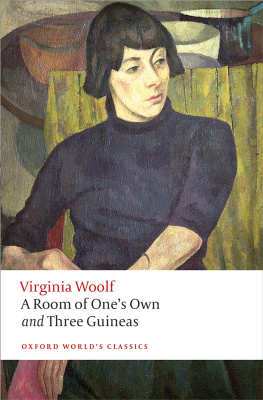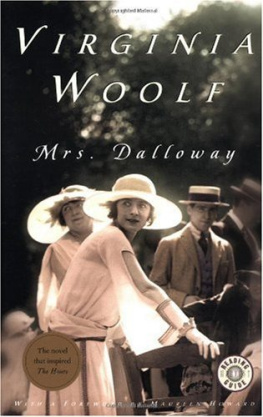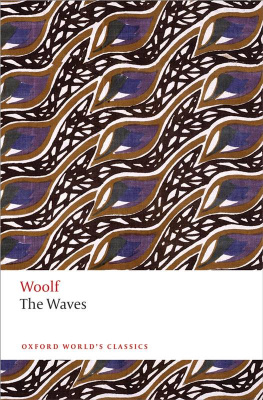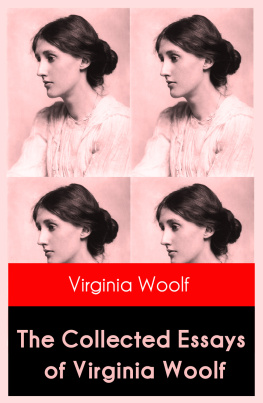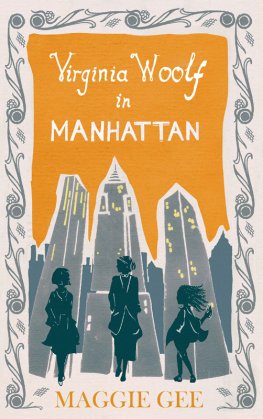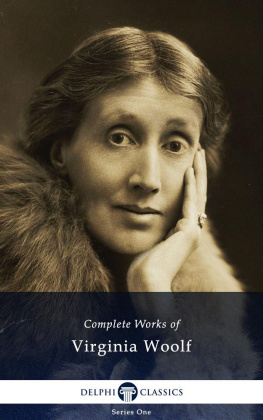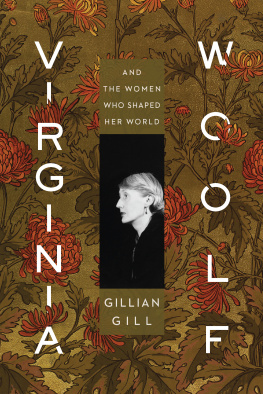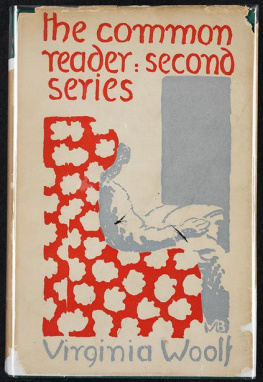Virginia Woolf - The Common Reader, Book 1
Here you can read online Virginia Woolf - The Common Reader, Book 1 full text of the book (entire story) in english for free. Download pdf and epub, get meaning, cover and reviews about this ebook. year: 2021, publisher: Open Road Media, genre: Art. Description of the work, (preface) as well as reviews are available. Best literature library LitArk.com created for fans of good reading and offers a wide selection of genres:
Romance novel
Science fiction
Adventure
Detective
Science
History
Home and family
Prose
Art
Politics
Computer
Non-fiction
Religion
Business
Children
Humor
Choose a favorite category and find really read worthwhile books. Enjoy immersion in the world of imagination, feel the emotions of the characters or learn something new for yourself, make an fascinating discovery.

- Book:The Common Reader, Book 1
- Author:
- Publisher:Open Road Media
- Genre:
- Year:2021
- Rating:3 / 5
- Favourites:Add to favourites
- Your mark:
- 60
- 1
- 2
- 3
- 4
- 5
The Common Reader, Book 1: summary, description and annotation
We offer to read an annotation, description, summary or preface (depends on what the author of the book "The Common Reader, Book 1" wrote himself). If you haven't found the necessary information about the book — write in the comments, we will try to find it.
The Common Reader, Book 1 — read online for free the complete book (whole text) full work
Below is the text of the book, divided by pages. System saving the place of the last page read, allows you to conveniently read the book "The Common Reader, Book 1" online for free, without having to search again every time where you left off. Put a bookmark, and you can go to the page where you finished reading at any time.
Font size:
Interval:
Bookmark:
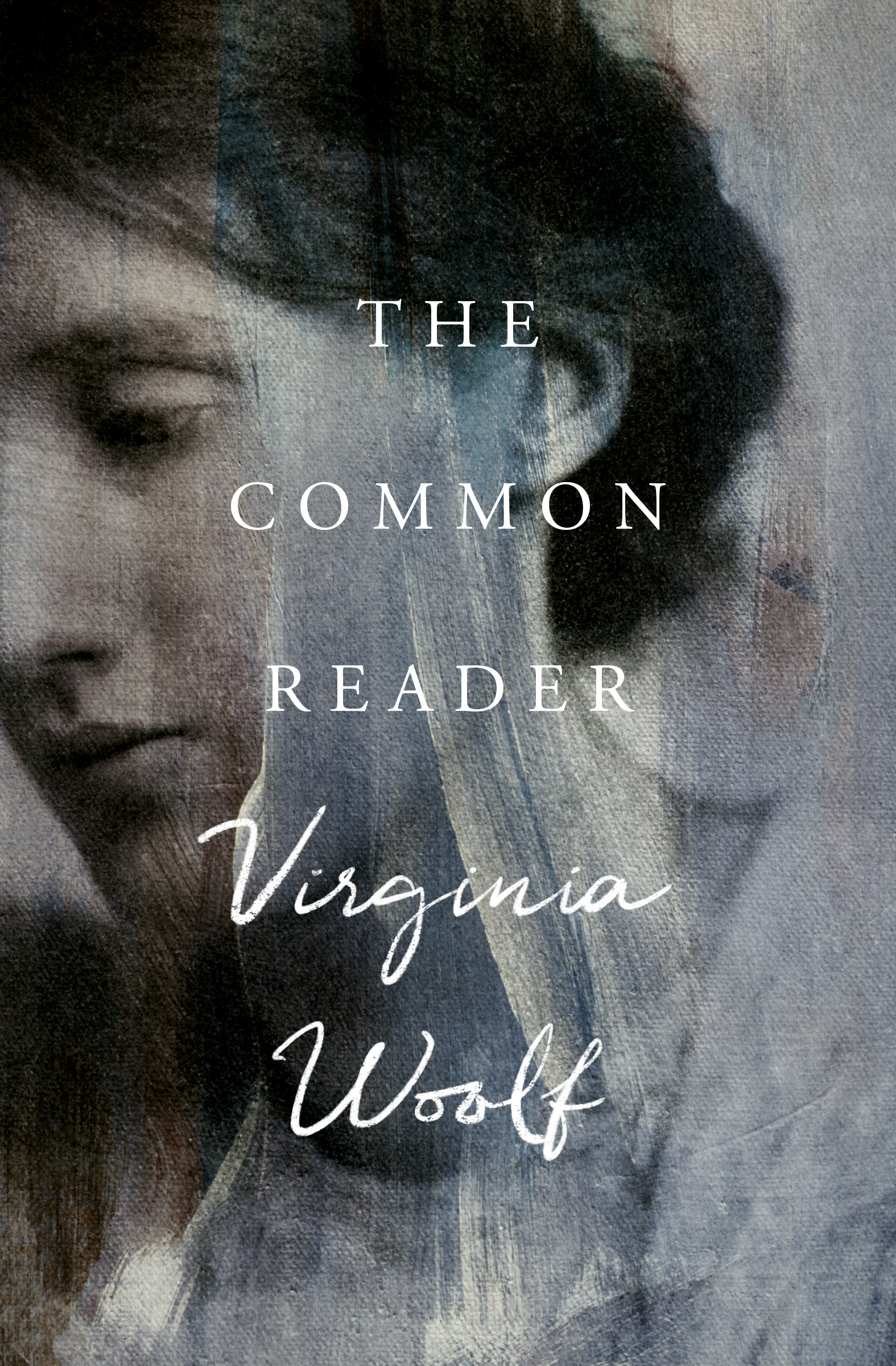

Contents
THE COMMON READER
There is a sentence in Dr. Johnsons Life of Gray which might well be written up in all those rooms, too humble to be called libraries, yet full of books, where the pursuit of reading is carried on by private people. I rejoice to concur with the common reader; for by the common sense of readers, uncorrupted by literary prejudices, after all the refinements of subtilty and the dogmatism of learning, must be finally decided all claim to poetical honours. It defines their qualities; it dignifies their aims; it bestows upon a pursuit which devours a great deal of time, and is yet apt to leave behind it nothing very substantial, the sanction of the great mans approval.
The common reader, as Dr. Johnson implies, differs from the critic and the scholar. He is worse educated, and nature has not gifted him so generously. He reads for his own pleasure rather than to impart knowledge or correct the opinions of others. Above all, he is guided by an instinct to create for himself, out of whatever odds and ends he can come by, some kind of wholea portrait of a man, a sketch of an age, a theory of the art of writing. He never ceases, as he reads, to run up some rickety and ramshackle fabric which shall give him the temporary satisfaction of looking sufficiently like the real object to allow of affection, laughter, and argument. Hasty, inaccurate, and superficial, snatching now this poem, now that scrap of old furniture, without caring where he finds it or of what nature it may be so long as it serves his purpose and rounds his structure, his deficiencies as a critic are too obvious to be pointed out; but if he has, as Dr. Johnson maintained, some say in the final distribution of poetical honours, then, perhaps, it may be worth while to write down a few of the ideas and opinions which, insignificant in themselves, yet contribute to so mighty a result.
THE PASTONS AND CHAUCER
The tower of Caister Castle still rises ninety feet into the air, and the arch still stands from which Sir John Fastolfs barges sailed out to fetch stone for the building of the great castle. But now jackdaws nest on the tower, and of the castle, which once covered six acres of ground, only ruined walls remain, pierced by loop-holes and surmounted by battlements, though there are neither archers within nor cannon without. As for the seven religious men and the seven poor folk who should, at this very moment, be praying for the souls of Sir John and his parents, there is no sign of them nor sound of their prayers. The place is a ruin. Antiquaries speculate and differ.
Not so very far off lie more ruinsthe ruins of Bromholm Priory, where John Paston was buried, naturally enough, since his house was only a mile or so away, lying on low ground by the sea, twenty miles north of Norwich. The coast is dangerous, and the land, even in our time, inaccessible. Nevertheless, the little bit of wood at Bromholm, the fragment of the true Cross, brought pilgrims incessantly to the Priory, and sent them away with eyes opened and limbs straightened. But some of them with their newly-opened eyes saw a sight which shocked themthe grave of John Paston in Bromholm Priory without a tombstone. The news spread over the country-side. The Pastons had fallen; they that had been so powerful could no longer afford a stone to put above John Pastons head. Margaret, his widow, could not pay her debts; the eldest son, Sir John, wasted his property upon women and tournaments, while the younger, John also, though a man of greater parts, thought more of his hawks than of his harvests.
The pilgrims of course were liars, as people whose eyes have just been opened by a piece of the true Cross have every right to be; but their news, none the less, was welcome. The Pastons had risen in the world. People said even that they had been bondmen not so very long ago. At any rate, men still living could remember Johns grandfather Clement tilling his own land, a hard-working peasant; and William, Clements son, becoming a judge and buying land; and John, Williams son, marrying well and buying more land and quite lately inheriting the vast new castle at Caister, and all Sir Johns lands in Norfolk and Suffolk. People said that he had forged the old knights will. What wonder, then, that he lacked a tombstone? But, if we consider the character of Sir John Paston, Johns eldest son, and his upbringing and his surroundings, and the relations between himself and his father as the family letters reveal them, we shall see how difficult it was, and how likely to be neglectedthis business of making his fathers tombstone.
For let us imagine, in the most desolate part of England known to us at the present moment, a raw, new-built house, without telephone, bathroom or drains, arm-chairs or newspapers, and one shelf perhaps of books, unwieldy to hold, expensive to come by. The windows look out upon a few cultivated fields and a dozen hovels, and beyond them there is the sea on one side, on the other a vast fen. A single road crosses the fen, but there is a hole in it, which, one of the farm hands reports, is big enough to swallow a carriage. And, the man adds, Tom Topcroft, the mad bricklayer, has broken loose again and ranges the country half-naked, threatening to kill any one who approaches him. That is what they talk about at dinner in the desolate house, while the chimney smokes horribly, and the draught lifts the carpets on the floor. Orders are given to lock all gates at sunset, and, when the long dismal evening has worn itself away, simply and solemnly, girt about with dangers as they are, these isolated men and women fall upon their knees in prayer.
In the fifteenth century, however, the wild landscape was broken suddenly and very strangely by vast piles of brand-new masonry. There rose out of the sandhills and heaths of the Norfolk coast a huge bulk of stone, like a modern hotel in a watering-place; but there was no parade, no lodging-houses, and no pier at Yarmouth then, and this gigantic building on the outskirts of the town was built to house one solitary old gentleman without any childrenSir John Fastolf, who had fought at Agincourt and acquired great wealth. He had fought at Agincourt and got but little reward. No one took his advice. Men spoke ill of him behind his back. He was well aware of it; his temper was none the sweeter for that. He was a hot-tempered old man, powerful, embittered by a sense of grievance. But whether on the battlefield or at court he thought perpetually of Caister, and how, when his duties allowed, he would settle down on his fathers land and live in a great house of his own building.
The gigantic structure of Caister Castle was in progress not so many miles away when the little Pastons were children. John Paston, the father, had charge of some part of the business, and the children listened, as soon as they could listen at all, to talk of stone and building, of barges gone to London and not yet returned, of the twenty-six private chambers, of the hall and chapel; of foundations, measurements, and rascally work-people. Later, in 1454, when the work was finished and Sir John had come to spend his last years at Caister, they may have seen for themselves the mass of treasure that was stored there; the tables laden with gold and silver plate; the wardrobes stuffed with gowns of velvet and satin and cloth of gold, with hoods and tippets and beaver hats and leather jackets and velvet doublets; and how the very pillow-cases on the beds were of green and purple silk. There were tapestries everywhere. The beds were laid and the bedrooms hung with tapestries representing sieges, hunting and hawking, men fishing, archers shooting, ladies playing on their harps, dallying with ducks, or a giant bearing the leg of a bear in his hand . Such were the fruits of a well-spent life. To buy land, to build great houses, to stuff these houses full of gold and silver plate (though the privy might well be in the bedroom), was the proper aim of mankind. Mr. and Mrs. Paston spent the greater part of their energies in the same exhausting occupation. For since the passion to acquire was universal, one could never rest secure in ones possessions for long. The outlying parts of ones property were in perpetual jeopardy. The Duke of Norfolk might covet this manor, the Duke of Suffolk that. Some trumped-up excuse, as for instance that the Pastons were bondmen, gave them the right to seize the house and batter down the lodges in the owners absence. And how could the owner of Paston and Mauteby and Drayton and Gresham be in five or six places at once, especially now that Caister Castle was his, and he must be in London trying to get his rights recognised by the King? The King was mad too, they said; did not know his own child, they said; or the King was in flight; or there was civil war in the land. Norfolk was always the most distressed of counties and its country gentlemen the most quarrelsome of mankind. Indeed, had Mrs. Paston chosen, she could have told her children how when she was a young woman a thousand men with bows and arrows and pans of burning fire had marched upon Gresham and broken the gates and mined the walls of the room where she sat alone. But much worse things than that had happened to women. She neither bewailed her lot nor thought herself a heroine. The long, long letters which she wrote so laboriously in her clear cramped hand to her husband, who was (as usual) away, make no mention of herself. The sheep had wasted the hay. Heydens and Tuddenhams men were out. A dyke had been broken and a bullock stolen. They needed treacle badly, and really she must have stuff for a dress.
Font size:
Interval:
Bookmark:
Similar books «The Common Reader, Book 1»
Look at similar books to The Common Reader, Book 1. We have selected literature similar in name and meaning in the hope of providing readers with more options to find new, interesting, not yet read works.
Discussion, reviews of the book The Common Reader, Book 1 and just readers' own opinions. Leave your comments, write what you think about the work, its meaning or the main characters. Specify what exactly you liked and what you didn't like, and why you think so.


